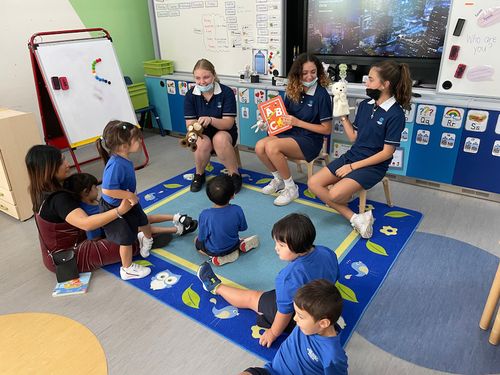The landscape of education has significantly evolved, departing from the traditional rote learning and standardised teaching. In recent years, educators and academic institutions, inspired by the principles of the International Baccalaureate (IB), have been actively seeking inventive pedagogical strategies that can address the unique requirements of students while equipping them with the skills needed to confront real-world complexities. This evolution reflects the IB’s commitment to holistic education, fostering a profound understanding of global complexities and nurturing students to become well-rounded, socially responsible individuals.
One of the transformative approaches that has risen to prominence is Problem-Based Learning (PBL). In this blog post, we will delve into the essence of PBL, its foundational principles, the advantages it brings, and the way it is reshaping the educational landscape.
Key Features of Problem-Based Learning
Problem-Based Learning, often abbreviated as PBL, is a student-centred pedagogical approach that flips the script on traditional teaching methods. Instead of passively receiving information from a teacher or textbook, students in a PBL environment become active, self-directed learners. PBL hinges on the principle of learning by doing and is characterised by the following elements:
- Real-World Problems
PBL begins with the presentation of a complex, real-world problem or scenario that is relevant to the subject matter being taught. These problems can be drawn from various fields, from healthcare to engineering, to business and beyond.
- Student-Centered Inquiry
Students work in small groups to explore and solve the problem. They identify gaps in their knowledge, formulate questions, and embark on a journey of self-directed inquiry to find answers. This process promotes critical thinking, problem-solving, and information retrieval skills.
- Facilitated Learning
While teachers play a different role in PBL, they act as facilitators or guides. They provide support and resources, help students define learning objectives, and ensure that the learning process is on track.
- Collaboration
Collaboration is at the heart of PBL. Students work together to brainstorm ideas, conduct research, and analyse information. This mirrors the teamwork often required in real-world situations.
- Feedback and Reflection
Regular feedback sessions allow students to assess their progress, identify areas for improvement, and adjust their strategies. Reflecting on their learning experience is a key component of the process.
- Multidisciplinary Approach
PBL often involves the integration of knowledge from multiple disciplines, encouraging a holistic understanding of the problem.
The Advantages of Problem-Based Learning and OWIS Digital Campus’ Commitment to Innovative Education
PBL brings forth an array of benefits for both students and educators, revolutionising the educational experience. Here are the advantages of PBL, with a focus on how One World International School (OWIS) Digital Campus* is embracing this innovative approach:
- Enhancing Critical Thinking
PBL inspires students to cultivate their critical thinking abilities. Through the requirement to analyse and apply information in real-world scenarios, PBL empowers students to enhance their proficiency as problem solvers. At OWIS Digital Campus, a strong dedication to nurturing these critical thinking skills is evident in our educational approach.
- Fostering Active Learning
PBL champions active learning, enriching the educational experience by making it more engaging and impactful. Students at OWIS Digital Campus are not passive receptors of knowledge but rather active contributors to their own learning process. Our unwavering dedication to active learning through PBL guarantees that students remain deeply engaged in their academic pursuits.
- Promoting Long-term Retention
PBL places a strong emphasis on profound comprehension, leading to enhanced knowledge retention. This approach ensures that our students go beyond temporary memorisation and instead internalise knowledge for meaningful application.
- Preparing for Real-Life Challenges
PBL equips our students with the practical skills and problem-solving abilities they need to navigate complex real-world challenges. OWIS Digital Campus places a strong emphasis on real-life preparation, ensuring that our students are ready to smoothly transition to professional life.
- Nurturing Collaboration Skills
Working in teams, our students learn to communicate effectively, share ideas, and work cohesively — a skill vital in many professional settings.
- Boosting Intrinsic Motivation
PBL empowers our students to take ownership of their learning. When students have ownership, they tend to be more motivated, leading to higher levels of engagement and enthusiasm.
Here at the One World International School Digital Campus, we are not only transforming education but also empowering students to thrive in the modern world by nurturing critical thinking, problem-solving, and collaborative abilities. This steadfast dedication to innovative education ensures that our students are well-equipped to meet the challenges of the 21st century.
For more information about OWIS Digital Campus, please visit this page or contact us.
*Proposed site for an international school that will open in 2023, subject to regulatory approvals. Classes for Early Childhood to Grade 8 for AY 2023-24 commenced on 28 August 2023 at an adjacent campus.














